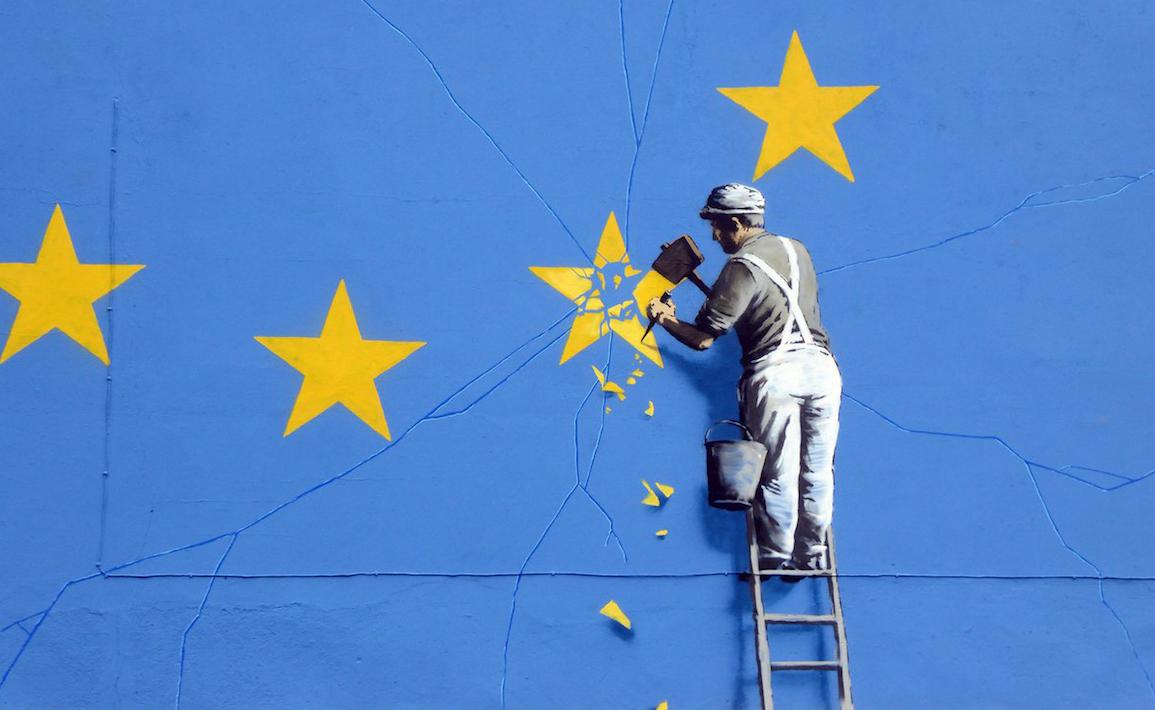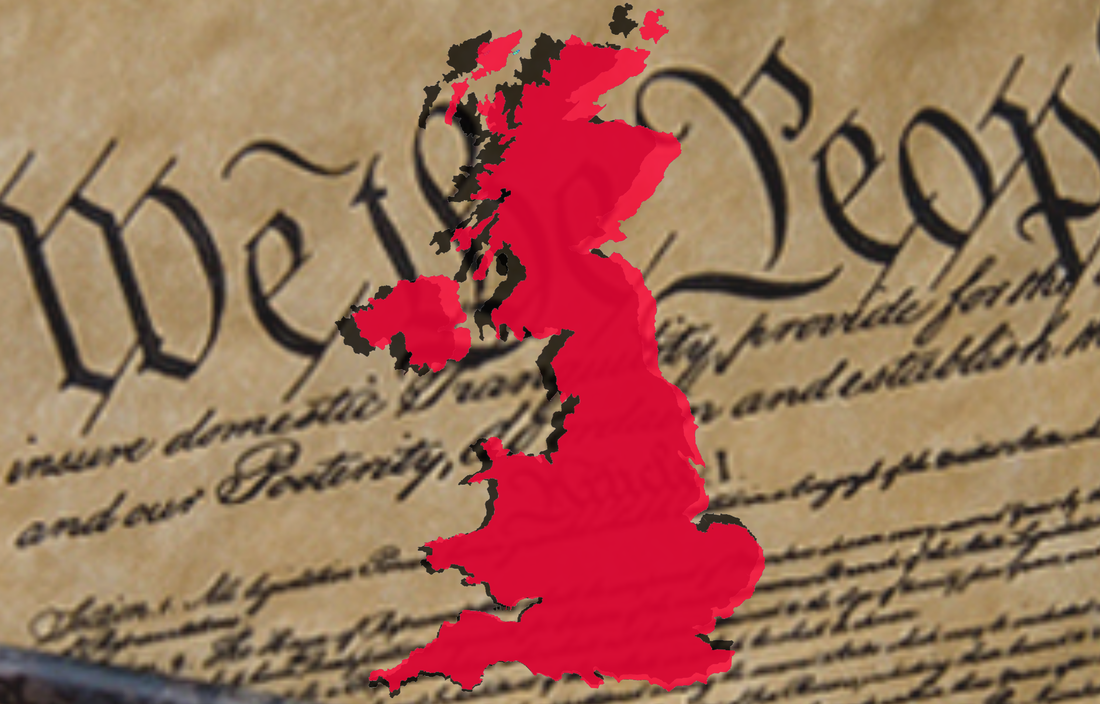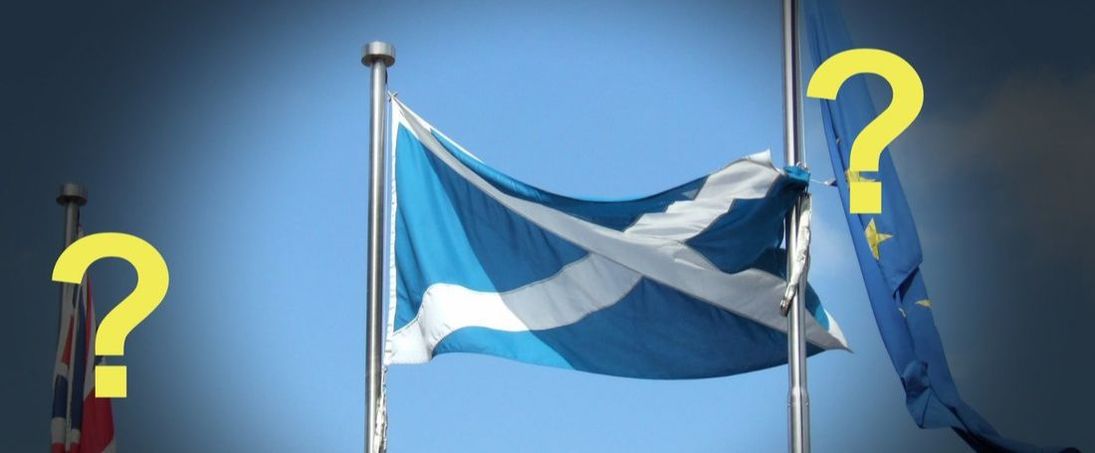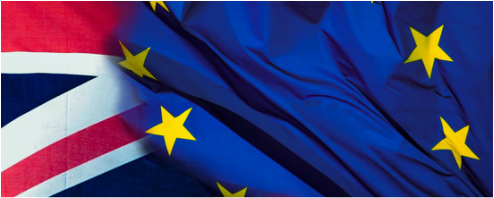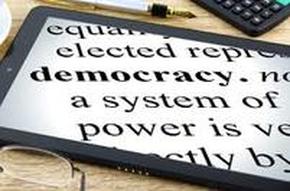(Image: Banksy on Brexit/Flickr)
For the European Union:
Back in June 2016, Alyn Smith, now SNP Shadow Foreign Affairs Spokesman in the House of Commons but then an MEP, addressed the European Parliament directly following the Brexit vote. His cry was "Remember, Scotland did not let you down – do not let Scotland down!" Yet that's exactly what the EU did.
Over 48% of UK voters wanted to remain, and 62% of Scots, but the UK Government chose to ignore them, dismiss them even, on the grounds that 'those were the rules/we voted as a United Kingdom' – notwithstanding that the public generally didn't actually want a referendum in the first place. (It was only held to appease Tory activists.) Had such minorities been cast aside in Bosnia, Kosovo, Myanmar, in Syria, in the DRC, Rwanda or Burundi, the EU would have responded very differently. Democracy is not majority rule.
Yet when it came to Brexit, the EU did indeed let Scotland down, and spectacularly. To a lesser extent, it let Northern Ireland down, too, although there at least the vote was close. It even let one of the R27 down: the Irish Republic – it should have made it far harder for the Good Friday Agreement to be unpicked.
And why? Two reasons. First, because it wanted to discourage any other country from such making such a rash move. It probably succeeded there, but it was like using the death penalty to discourage double parking. Second, because it cow-towed to Madrid, which was afraid that allowing special arrangements for Scotland and Northern Ireland would open the door to Catalonian separatists. By the time it became clear that the three situations were very, very different, it was too late.
Over 48% of UK voters wanted to remain, and 62% of Scots, but the UK Government chose to ignore them, dismiss them even, on the grounds that 'those were the rules/we voted as a United Kingdom' – notwithstanding that the public generally didn't actually want a referendum in the first place. (It was only held to appease Tory activists.) Had such minorities been cast aside in Bosnia, Kosovo, Myanmar, in Syria, in the DRC, Rwanda or Burundi, the EU would have responded very differently. Democracy is not majority rule.
Yet when it came to Brexit, the EU did indeed let Scotland down, and spectacularly. To a lesser extent, it let Northern Ireland down, too, although there at least the vote was close. It even let one of the R27 down: the Irish Republic – it should have made it far harder for the Good Friday Agreement to be unpicked.
And why? Two reasons. First, because it wanted to discourage any other country from such making such a rash move. It probably succeeded there, but it was like using the death penalty to discourage double parking. Second, because it cow-towed to Madrid, which was afraid that allowing special arrangements for Scotland and Northern Ireland would open the door to Catalonian separatists. By the time it became clear that the three situations were very, very different, it was too late.
For the UK Government
Although the Conservatives clearly forced the pace of Brexit and take the lion's share, it isn't only the Tories who are to blame for where we're at. Sure, a couple of weak Conservative Prime Ministers failed to stand up to their own backbenchers, but Labour also allowed itself to be infiltrated by anti-EU activists. Sure, the EU is a capitalist free market with a great many faults, but leaving the EU doesn't help to change it.
But both the major parties were guilty of using the UK's relationship with the EU to get elected. And it's a lot easier to point out the weaknesses in any institution than its strengths: defending anything instinctively sounds negative. For decades, too, successive UK governments have been all too happy to allow EU bureaucratic regulation to shoulder the blame for actions the UK strongly supported itself: over safety requirements, in the environment, safeguarding fishing stocks, data protection, human rights and many others. It was cowardly to hide behind Brussels, and now we're paying the price for it.
But both the major parties were guilty of using the UK's relationship with the EU to get elected. And it's a lot easier to point out the weaknesses in any institution than its strengths: defending anything instinctively sounds negative. For decades, too, successive UK governments have been all too happy to allow EU bureaucratic regulation to shoulder the blame for actions the UK strongly supported itself: over safety requirements, in the environment, safeguarding fishing stocks, data protection, human rights and many others. It was cowardly to hide behind Brussels, and now we're paying the price for it.
For the British Public
At some point in the future, history will allow us to look in the mirror and recognise that the principal driver in the Brexit vote was out and out racism. We're all a little bit racist; anyone who tries to say 'I'm not a racist' is virtually shining a light on their own racism. Racism is underpinned by fear of the unknown, of the different. Just imagine if you were sitting on a sofa, and a big friendly green Martian sat down beside you: you'd instinctively want to move away slightly. Or if every Middle East refugee in the world was to settle in your city: you'd not be happy, complaining that your housing, services and economy was overwhelmed, and that communication was impossible. And of course that some of these refugees could be terrorists seeking to return home, with all the collateral implications for your local area.
I'm not saying that there aren't plenty of folk out there with genuinely held anti-EU views, but they were more than happy to allow swathes of racist xenophobes to latch on to them. That was certainly shameful. But ordinary people want the right to vote, and with that comes a responsibility to use it wisely. For all that, too many people in the UK freely admit that they voted in 2016 when they hadn't a clue what they were voting for. Astonishingly, huge numbers of Brexit voters did so in order to protest against the influx of illegal Asian and African migrants.
It's extraordinary that antisemitism and Islamophobia have dominated the news so much recently, yet the UK public couldn't relate that to its own complaints about Poles and other Eastern Europeans. Perhaps it was appropriate, then, that we left the EU in the same week as Holocaust Memorial Day. Despite the fine words, we've clearly learned nothing at all.
I'm not saying that there aren't plenty of folk out there with genuinely held anti-EU views, but they were more than happy to allow swathes of racist xenophobes to latch on to them. That was certainly shameful. But ordinary people want the right to vote, and with that comes a responsibility to use it wisely. For all that, too many people in the UK freely admit that they voted in 2016 when they hadn't a clue what they were voting for. Astonishingly, huge numbers of Brexit voters did so in order to protest against the influx of illegal Asian and African migrants.
It's extraordinary that antisemitism and Islamophobia have dominated the news so much recently, yet the UK public couldn't relate that to its own complaints about Poles and other Eastern Europeans. Perhaps it was appropriate, then, that we left the EU in the same week as Holocaust Memorial Day. Despite the fine words, we've clearly learned nothing at all.
